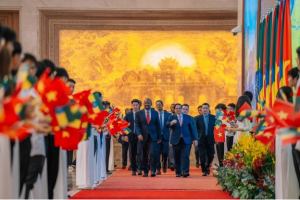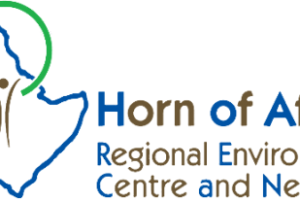With aggressive liberalization and opining up of the economy, Ethiopia has been embarking on an ambitious macroeconomic reform in recent years. The economic transformation has been driven by a series of bold and strategic reforms aimed at tackling persistent structural economic challenges. These reforms are designed to stabilize the economy, create conducive environment for private sector growth, and attract foreign investment.
In fact, this reform process has been guided by the government’s Homegrown Economic Reform Program (HGER), which seeks to address macroeconomic imbalances, stimulate private sector growth, and attract foreign direct investment. The liberalization efforts come in response to structural challenges such as inflation, external debt, and foreign exchange shortages, which have constrained economic growth despite Ethiopia’s historical reputation as one of Africa’s fastest-growing economies.
One of the key aspects of macroeconomic reform has been the gradual shift from heavy state control over major industries toward increased private sector participation. The government has begun privatizing state-owned enterprises (SOEs) in sectors such as telecommunications, energy, and logistics, recognizing the need for private investment to enhance efficiency and innovation. The partial privatization of Ethio Telecom, Ethiopia’s state-owned telecommunications monopoly is a landmark example of this shift. The entry of private players into the sector is expected to improve service quality, expand digital access, and generate revenue for the government.
Foreign exchange shortages have been a persistent issue in the country, and the government has sought to address this through financial sector reforms and improved foreign currency management. The introduction of a managed floating exchange rate system is among the measures aimed at gradually adjusting the currency to reflect market conditions while preventing sharp devaluations that could exacerbate inflation. Additionally, Ethiopia has moved to ease restrictions on foreign investment, allowing greater participation in key sectors that were previously closed to non-Ethiopian entities. These measures are expected to enhance capital inflows, alleviate foreign exchange constraints, and bolster external reserves.
Inflation has been another critical challenge in Ethiopia’s economic landscape, driven by supply chain disruptions, currency depreciation, and expansionary fiscal policies. The government has responded with monetary tightening policies, including reducing excessive borrowing from the central bank and implementing structural fiscal adjustments. The National Bank of Ethiopia has also taken steps to strengthen financial regulations and encourage the modernization of the banking sector. The ongoing digitalization of financial services and expansion of mobile banking have contributed to improving financial inclusion, which is essential for sustainable economic growth.
And, tested by internal conflicts and influenced by global economic trends, some find it difficult to believe in Ethiopia’s continuous economic boom. However, despite these challenges, the country has demonstrated resilience and sustained growth over the years. As the largest economy in the Horn of Africa, Ethiopia has consistently proven skeptics wrong, and its economic trajectory has been validated by international financial institutions.
Ethiopia’s government has undertaken bold macroeconomic reforms to address structural challenges, foster sustainable development, and create an inclusive and dynamic market system. These initiatives have not only attracted international recognition but have also secured significant financial backing from global institutions. This article explores Ethiopia’s macroeconomic reforms, the role of liberalization, and the testimonies of international financial institutions and the broader international community.
One of the most significant aspects of Ethiopia’s reform agenda has been the gradual liberalization of the financial sector. Through allowing foreign investors into the sector, Ethiopia aims to inject much-needed capital, enhance efficiency, and improve financial services. The liberalization of the financial market is expected to provide businesses with better access to credit, stimulate entrepreneurship, and drive economic expansion.
The government has also made strategic adjustments to the foreign exchange regime to address currency volatility and improve investor confidence. These measures have played a crucial role in stabilizing inflation and strengthening Ethiopia’s economic resilience.
The commitment to reform has not gone unnoticed by the international community. Key international financial institutions and partners have endorsed the government’s economic strategy and provided significant financial support to sustain the transformation.
The International Monetary Fund (IMF) and the World Bank have been at the forefront of supporting Ethiopia’s economic transformation. The IMF has praised Ethiopia’s dedication to macroeconomic reforms and has committed substantial financial assistance to back these efforts. Notably, the IMF’s concessional financing program for Ethiopia, amounting to $3.5 billion, is the largest of its kind. This program is aimed at supporting Ethiopia’s ambitious economic agenda and ensuring sustainable growth.
IMF Managing Director Kristalina Georgieva has lauded Ethiopia’s economic progress, highlighting its impressive 8.1% GDP growth, which exceeded the projected 6.1%. According to Georgieva, Ethiopia’s reforms have opened new avenues for private sector participation, enhanced productivity, and created a more conducive economic environment.
Similarly, the World Bank has commended Ethiopia’s economic initiatives and has extended financial aid to support projects that enhance transparency, governance, and infrastructure development. The World Bank recognizes Ethiopia’s potential to emerge as a key economic player in Africa and continues to support its reform-driven agenda.
The African Union (AU) and other regional bodies have also expressed confidence in Ethiopia’s economic trajectory. The AU sees Ethiopia as a model for economic transformation and resilience in the face of adversity. The country’s economic strategy is expected to serve as a blueprint for other African nations seeking to undertake similar reforms.
A major milestone in Ethiopia’s economic progress has been the establishment of the Ethiopian Securities Exchange (ESX). The ESX is a testament to the country’s commitment to fostering a modern and inclusive financial market. By providing a platform for businesses to raise capital and investors to engage in trading, the ESX is expected to enhance financial market depth and efficiency.
The economic transformation has garnered widespread approval from global financial institutions and international partners. The International Monetary Fund (IMF) and the World Bank have commended Ethiopia’s commitment to reform and provided substantial financial assistance to support its economic ambitions.
IMF Managing Director Kristalina Georgieva praised Ethiopia’s economic trajectory, attributing its growth to reform-driven policies that have empowered the private sector and improved productivity. The IMF has also extended a $3.5 billion concessional financing program, underscoring its confidence in Ethiopia’s policies.
The World Bank, the African Development Bank, and the European Union have echoed similar sentiments, acknowledging Ethiopia’s efforts to enhance governance, transparency, and sustainable development.
A key milestone in Ethiopia’s economic evolution is the launch of the Ethiopian Securities Exchange (ESX). This initiative is a significant step toward modernizing the financial sector, attracting investments, and fostering capital market development.
UK Deputy Prime Minister Angela Rayner, during her visit to the ESX, hailed Ethiopia’s economic progress, reinforcing the country’s growing global reputation.
Ethiopia’s economic growth, fueled by bold reforms and strategic policies, has positioned it as a rising economic powerhouse in Africa. The international community’s endorsement, coupled with financial backing from institutions like the IMF and World Bank, highlights Ethiopia’s potential for sustained progress. With continued commitment to reform and innovation, Ethiopia is poised to achieve long-term prosperity and regional economic leadership.
The macroeconomic reforms and liberalization efforts represent a significant shift toward sustainable economic growth. The country has demonstrated remarkable resilience in the face of economic and political challenges, earning international recognition and financial backing from institutions such as the IMF, World Bank, and African Development Bank.
With the unwavering support of the international community and the government’s commitment to economic transformation, the country is on the path to solidifying its position as an economic powerhouse in Africa. The country’s bold economic strategies, combined with strong leadership and strategic partnerships, will continue to drive progress and prosperity for years to come.
BY STAFF REPORTER
THE ETHIOPIAN HERALD SATURDAY 22 FEBRUARY 2025





